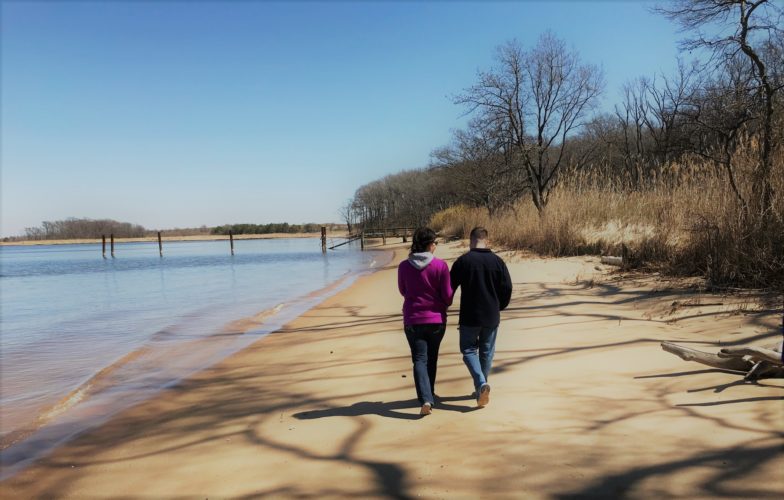
Patience and Pornography: The Delicate Balance of the Healing Journey
How long does it take to break free from pornography? That’s a common question asked by people who struggle and the people who help them.
In a world filled with quick fixes and 8 week plans, it can feel like the road to freedom should be simple and fast. After all, if you really want to stop, why don’t you? Stopping should be easy.
Hear me out when I say it’s not that simple.
I’m not here to make excuses. If you’re a wife hurt by your husband’s use (or a husband confused by your wife’s use), I’m not here to discredit your pain. If you are a counselor, pastor, parent, accountability partner, I’m not trying to frustrate you. The path to freedom is simply a lot more complicated than “just stop” and I want to offer some insight into why in hopes that we all can learn to be a little more patient.
Rushing the healing journey can actually lead to more problems.
An impatient approach to freedom focuses on modifying a behavior instead of healing. It’s the “I don’t care why you’re doing it; just stop” attitude and it isn’t helpful. In fact, what happens is the person stops doing the behavior and replaces it with something else. Why? because the root issues aren’t being addressed.
I have had young women write, telling me how they stopped porn “cold turkey” and then immediately transitioned to behaviors like cutting.
Instead of an outside-in approach that says, “Fix this first and heal later” have an inside-out approach because outer behavior is easier to change when the inner motivations are lessened.
If it’s just a poor choice of entertainment, then it’s easy to choose a different hobby. It’s important to remember that for many people who struggle with pornography, male and female alike, the struggle is rooted in something more than entertainment.
In the workbook, Sexual Sanity for Women, a woman’s struggle is likened to a tree. The behavior we see is the fruit, but the fruit is affected by an entire system from the trunk to the roots to the soil. Chopping off rotten fruit leaves you with a broken tree.
It’s important that the journey of freedom is not focused solely on behavior.
What does this mean?
If you’re the one struggling, it means being patient with that journey. There will be good days and bad days. Hinging the success of your journey on whether or not you watched porn today will result in feeling like a failure.
It took over a year for me to feel free.
That’s not because I didn’t want to stop. I had tried to stop for years. At one point, I even resorted to self-harm to punish myself for watching pornography. Even after I asked for help and started getting help, I still struggled. Every time I went home on break, I would fall back into the same patterns and habits, much to my own frustration.
It was unbelievably discouraging to struggle so much to be free. If I didn’t want to do this, why did I keep doing it?
Because in the process of my struggle with pornography, I had used it as an escape. I used to it cope with emotions. The online sex chatting served as a replacement for relationships. Pornography had seeped into so many areas of my life, I didn’t necessarily know how to function without it.
I didn’t know how to cope with stress, sadness, or anger. Part of my healing involved learning how to cope with those emotions in healthy ways and not always seek out escape.
I didn’t know how to deal with my sexual desire. Part of healing involved learning how to embrace my sexuality without the need to constantly express or satisfy it.
I didn’t know how to have healthy relationships with others. Part of healing involved learning how to be authentic and interact with others in a healthy way.
If you’re helping someone who struggles, be patient.
It’s important to remember that if someone has come to you asking for help, they want to be free more than you want them to be free. Don’t get frustrated with them. They can feel it, and your frustration adds to their shame.
Understand that when you sign on to help somebody, you are signing on for the long haul. You’re not the surgeon who gets to open them up, rip something out and stitch them back up again. You’re the physical therapist, or the caretaker who helps them through their recovery.
This is a time commitment, and the length of time depends on the person and their journey. It doesn’t depend on you and your capabilities.
There are going to be “relapses.” There may be great days of zero porn followed by binge days of hours of use. You may be tempted to give up. You may be tempted to say things like:
- “If you really loved me, you would stop this”
- “If you really loved Jesus, you would stop this”
- “If you really wanted to be free, you wouldn’t still have this problem.”
As tempting as those things might be to say in the heat of frustration, don’t. They cut deeper than you realize. They erect walls, and lay waste to healing that has already occurred. I have received several e-mails from women whose accountability partners/husbands/parents/pastors are frustrated with the slow progress of their journey.
Impatience and frustration doesn’t motivate change, it promotes shame. It discourages openness and actually sabotages both healing and freedom.
The unintentional message being shared is, “Get your act together and then you are acceptable” and that is the opposite of grace.
Now, if the person you are trying to help doesn’t seem to have any interest in helping themselves, that’s one thing. You can’t fix this for them no matter how much you threaten or get angry. However, if they tell you they are honestly trying (pro tip: you don’t get to be the judge of this), be patient.
For me, pornography was a symptom of much deeper issues and it took time for those to heal.
Freedom comes with healing. It’s about saying, “I don’t want this anymore and, better yet, I don’t need this anymore.” That process takes time. Yes, that can be frustrating for all parties involved. But if you’re going to be free, be completely free.
Healing is worth doing well.




